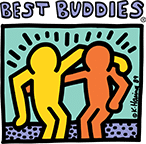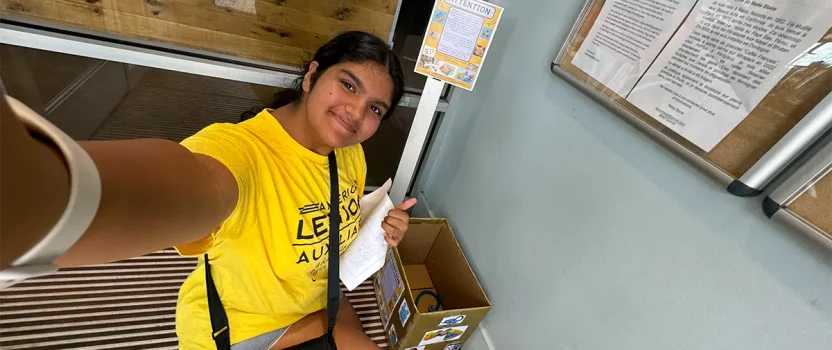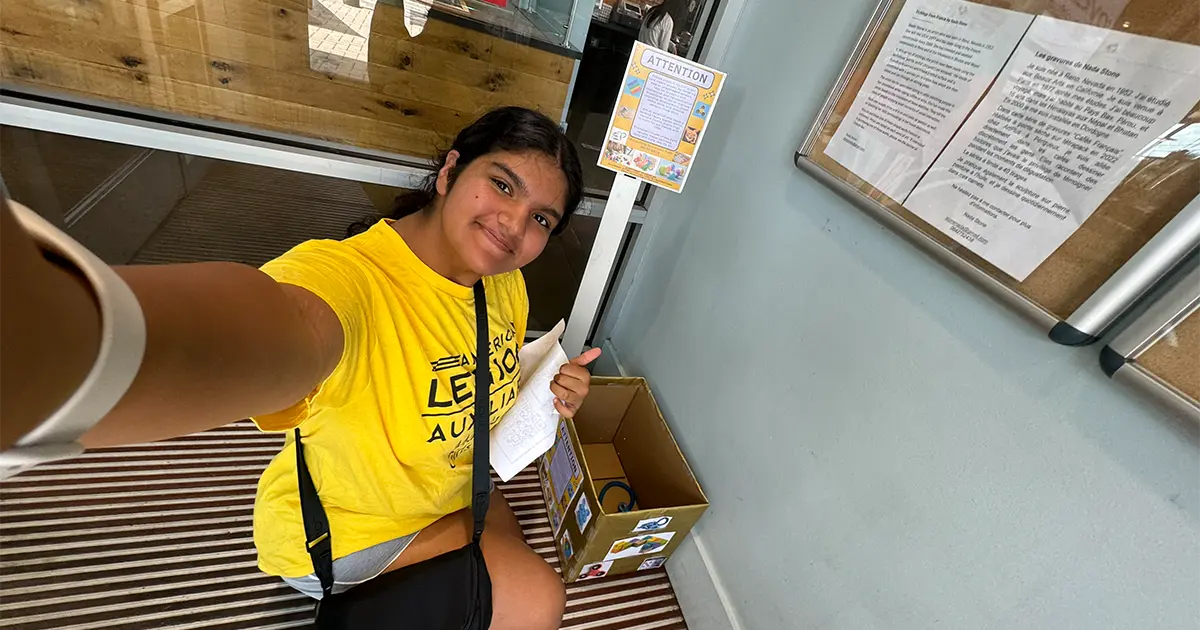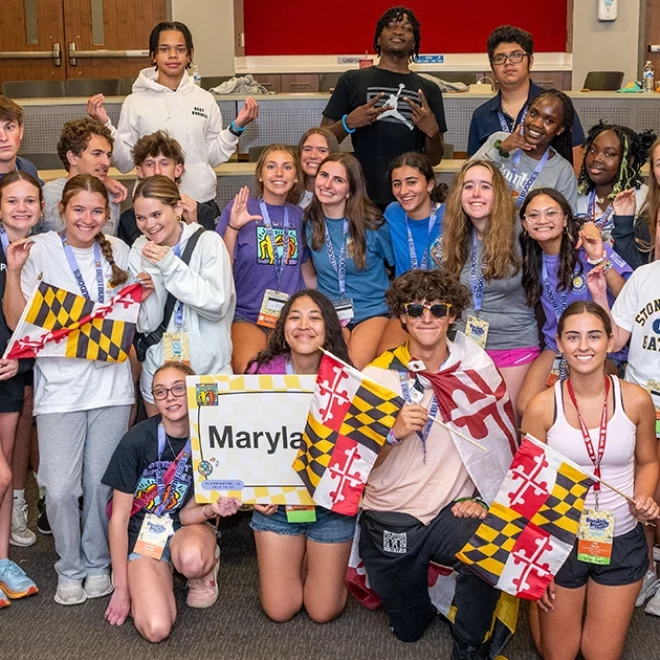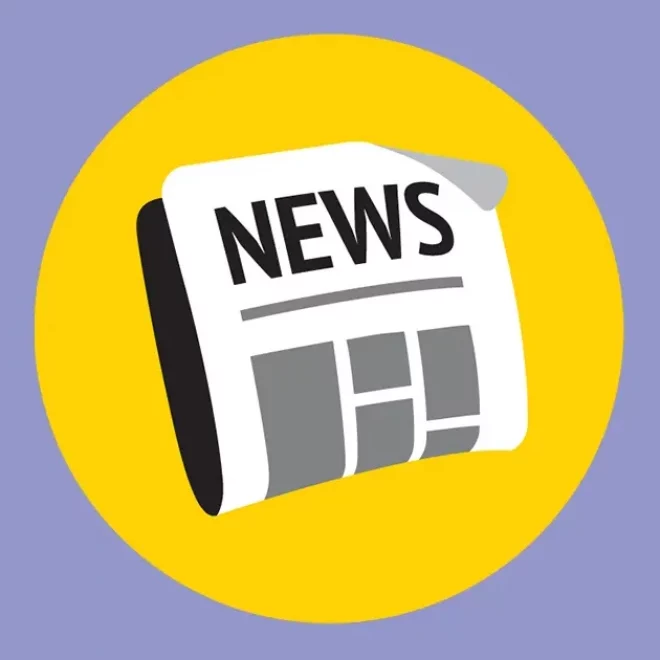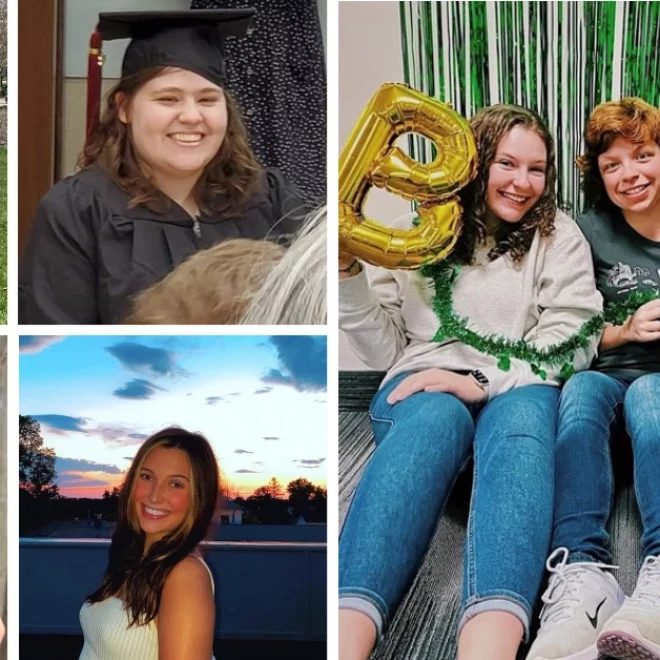Gina’s Sensory Connection Project
Since her youth, Gina Dhaliwal has been drawn to uplifting her peers with special needs. Whenever an opportunity presented itself, whether it was a call for volunteers or someone needing a friend, she always sought ways to show up.
Now a senior in high school, Gina reflects on the moment it resonated with her: when the Howard County Board of Education budget faced a major challenge, she was driven to ask herself, “What if a potentially vulnerable community of friends is affected?”
She began to research budget proposals and realized there was indeed a large risk of reducing the level of funding for support for Academic Life Skills (ALS) and Special Education programs across Howard County’s public school system.
Identifying the Problem
To better understand whether she might have solutions to offer, Gina asked questions of her high school’s ALS teacher and Best Buddies chapter sponsor, Mr. Roo Saglimbeni; parents and guardians of students she had grown close to over the years during her active involvement with her high school Best Buddies chapter; and others she engaged with as a multi-year volunteer in her school-sponsored Allied Golf program. This program connects athletes with special needs to neurotypical teens to bridge divides and create community.
What she heard was twofold: teachers often had to take from their own pockets to supplement resource needs for their students, and there were no structured ways to assess or replenish the inventory of special needs sensory supports. Inspired by these conversations, Gina decided to take action by establishing a Sensory Toy Lending Library system for individuals with Intellectual and Developmental Disabilities (IDD).
Developing a Sustainable Solution
As a Girl Scout working toward her Gold Award, Gina framed her project within the Scouts’ emphasis on sustainable impact. She envisioned a solution that would not only address immediate resource gaps but also provide a lasting framework that other schools, states, and even nations could replicate.
She approached Mr. Saglimbeni to sponsor her project, which he graciously accepted. With his support, Gina began implementing her vision by educating her community and seeking donations. She partnered with a local international market to place donation boxes and created posters to raise awareness about the importance of sensory toys in supporting motor skill development, cognitive growth, and mental health.
Community Engagement and Execution
The response from the community was overwhelmingly positive. Gina received messages of support, encouragement, and gratitude, along with an abundance of sensory toy and fidget donations. With the help of her Girl Scout troop, she sanitized and organized over 1,500 donated items. Ultimately, 1,157 usable toys were distributed evenly among Lending Library boxes for each of the 13 Howard County public high schools.
To ensure the sustainability of the project, Gina worked with Best Buddies Maryland and the Howard County Department of Special Education to develop maintenance instructions for the libraries. These instructions provide detailed steps for replenishing and sanitizing the toys, along with guidelines for periodic inventory assessments.
Expanding the Impact
Gina didn’t stop at implementation. She proposed adding a designated officer role within Howard County Best Buddies chapters to oversee Lending Library inventory needs. She also collaborated with the HCPSS Parent Coordinator to inform parents of ALS students about the resource and secured Mr. Saglimbeni’s agreement to act as a point of contact for operational support.
Reflecting on Success
One of Gina’s proudest moments came when she reported the project’s success to the same community members, business partners, and volunteers who had supported her efforts. Her ability to engage her community, identify a solution, and create a sustainable system exemplifies leadership and dedication.
Gina’s Sensory Toy Lending Library project is a testament to the power of collaboration, innovation, and compassion. Her efforts have not only provided critical resources to students with IDD but also laid the groundwork for a legacy of inclusion and support in her community.
